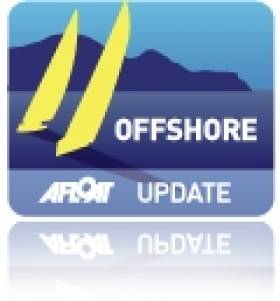Displaying items by tag: offshore Puma
Puma Finishes Transatlantic Race
"We entered the race with zero expectations, just like the other IRC handicap racing we've done this year," Read said. "We wanted to learn the boat and the crew. Now, here we are in the position of possibly winning a race that we didn't expect to win. We're pleasantly shocked. We didn't break anything, the sails held up, the team is certainly coming together, and there's not a single negative to this race. It was a great experience."
The race was the first test for the PUMA team and new Volvo Open 70 racing yacht. The 11-member crew departed Newport, R.I., on Sunday, July 3, alongside five other boats in IRC Class 1 in the final start of the race. Rambler 100 (skipper George David) earned line honors after finishing on Sunday, July 10, at 16:08 UTC. Also in the class: ICAP Leopard (Clarke Murphy); Beau Geste (Karl Kwok); Sojana (Peter Harrison); and Vanquish (USMMA – All American Offshore Team). Overall, 26 boats ranging from 40 to 289 feet in length entered the race.
PUMA's Mar Mostro reached a maximum speed of just over 30 knots early in the race, traveling 551 nautical miles on Day 3. By Friday, light air slowed the pace through the line.
"The finish was excruciating," Read said. "We approached The Lizard, knowing we had to get there quick because the current was about to change and go against us. As we entered the English Channel, the breeze was dying steadily to the point where the current did change. Literally, when the race committee said we were finished, we were stopped and about to throw the anchor as we would have been going backwards with the current. A bizarre twist to the finish.
"But, this is boat racing," Read continued. "It's great training because you have to be ready for the extreme highs and lows, and that goes for weather as well. To finish in a complete drift off is another lesson learned – be prepared for everything."
Read and crew are not stopping in the U.K., but are already heading south to the Canary Islands. The team's summer training headquarters becomes the Puerto Calero Marina in Lanzarote at the end of this week. From there, the crew will head to the race start location of Alicante, Spain, in late September. Next racing on the docket is the Volvo Ocean Race with Leg 1 beginning November 5.
"The boat doesn't have a list of any real problems," Read said looking ahead. "But, we can't sit back and think 'we're done,' or that we're great. We know we have to get better, and an experience like this helps us sort out a lot of little things that we can get better at. If you don't improve every day, then you're going backwards because everybody else is improving."





























































